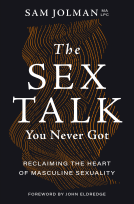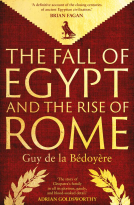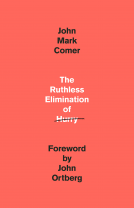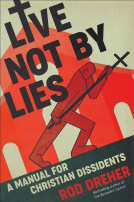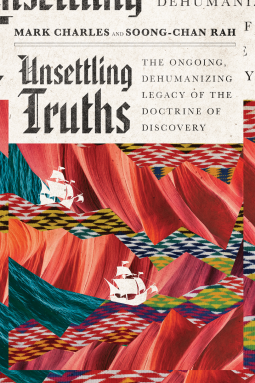
Unsettling Truths
The Ongoing, Dehumanizing Legacy of the Doctrine of Discovery
by Mark Charles; Soong-Chan Rah
This title was previously available on NetGalley and is now archived.
Send NetGalley books directly to your Kindle or Kindle app
1
To read on a Kindle or Kindle app, please add kindle@netgalley.com as an approved email address to receive files in your Amazon account. Click here for step-by-step instructions.
2
Also find your Kindle email address within your Amazon account, and enter it here.
Pub Date Nov 05 2019 | Archive Date Jan 14 2020
Talking about this book? Use #UnsettlingTruths #NetGalley. More hashtag tips!
Description
ECPA Top Shelf Book Cover Award
American Society of Missiology Book Award
★ Publishers Weekly starred review
You cannot discover lands already inhabited.
Injustice has plagued American society for centuries. And we cannot move toward being a more just nation without understanding the root causes that have shaped our culture and institutions. In this prophetic blend of history, theology, and cultural commentary, Mark Charles and Soong-Chan Rah reveal the far-reaching, damaging effects of the "Doctrine of Discovery." In the fifteenth century, official church edicts gave Christian explorers the right to claim territories they "discovered." This was institutionalized as an implicit national framework that justifies American triumphalism, white supremacy, and ongoing injustices. The result is that the dominant culture idealizes a history of discovery, opportunity, expansion, and equality, while minority communities have been traumatized by colonization, slavery, segregation, and dehumanization. Healing begins when deeply entrenched beliefs are unsettled. Charles and Rah aim to recover a common memory and shared understanding of where we have been and where we are going. As other nations have instituted truth and reconciliation commissions, so do the authors call our nation and churches to a truth-telling that will expose past injustices and open the door to conciliation and true community.
Advance Praise
"With thorough research, Mark Charles and Soong-Chan Rah share the foundational truths of American history and theologies that have influenced us for over five hundred years, correcting the purposefully hidden erasure of what actually happened on this land and why it continues to this day. Unsettling Truths is a righteous and integral narrative that must be heard and absorbed if we are to move forward with any sense of national dignity and morality. Rah and Charles are courageous in this scholarly telling of these historical truths; the question is, Are we courageous enough to listen?"
-Randy Woodley, Distinguished Professor of Faith and Culture at George Fox Evangelical Seminary, author of Shalom and the Community of Creation
"Unsettling Truths is a must-read for all Christians and should become a staple of seminary education. There is virtually no other book targeted toward a biblically centered audience that explains the theological significance of the doctrine of discovery and its legal progeny for not only Native peoples but for Christian settlers. In addition, there are virtually no books that so adeptly analyze the relationship between settler colonialism and Indigenous genocide with the history of racialization of other people of color in the United States. Through their masterful and extended analysis of the ideological and legal foundations of the United States, these authors force to us to wrestle the unsettling truths of the foundations of US democracy. As the same time, they provide us the resources to imagine biblically based possibilities for new forms of collectivity and governance beyond settler colonialism. This book provides not only critically needed information about the generally misunderstood political and legal status of Native nations, it provides a paradigm-shifting approach for how to understand the United States (and other settler nations) from a biblical perspective."
-Andrea Smith, cofounder of Evangelicals 4 Justice and board member of the North American Institute for Indigenous Theological Studies
Available Editions
| EDITION | Other Format |
| ISBN | 9780830845255 |
| PRICE | $21.99 (USD) |
| PAGES | 224 |
Links
Featured Reviews
 David S, Reviewer
David S, Reviewer
The following is the review I posted on Goodreads:
This review is for a Launch Team Edition. The forthcoming publishing date is November 5, 2019.
This book is about the Doctrine of Discovery and the Christian Church. It explores how this doctrine has oppressed nations and people of color. It presents a history that has not been put forth in the textbooks and is very well documented.
The authors have created a much needed look at the Church's role in the Doctrine of Discovery. It is a book that I believe Church's should read, discuss and take action on as assistants as determined by the leaderships of people of color.
This was a book I did not want to put down and brought forth lament, tears, and the desire to make a difference. I highly recommend it!
The past few years have seen many contributions from people of color regarding their experience in America in light of its heritage of white supremacy, especially as it relates to the Christian faith; this work is an important contribution to that end, featuring the perspective of a Native American regarding the "doctrine of discovery" and its implications in Western civilization ever since.
The author brings to the fore the principle which undergirded the colonization of America: the "doctrine of discovery," enshrined in papal bulls granting the Portuguese and Spanish dominion over any lands they would "discover," even though the lands they discovered already had Native populations within it. It was presumed that the Europeans "discovering" these lands were superior in belief and nature to those who would be "discovered," and from this principle would come the ungodly, dehumanizing, and genocidal treatment of the Native Americans at the hands of Europeans from the 16th century into the 20th. The author describes how the "doctrine of discovery" became enshrined in American legal precedent in the Johnson vs. M'Intosh Supreme Court decision in 1823, and has remained live and active to the present, used in a justification of denying a Native claim to land in New York in 2005.
The author speaks of the transgressions of the nation: the forced deportation of Natives from their lands to places out West; the dire conditions of the reservations; the massacres at Sand Creek and Wounded Knee; the boarding schools and the desire to "get the Indian out of the man". He likewise views "Western" civilization through critical lenses: its white supremacy, its "Christendom" and Christianity's compromise with empire, its dysfunctional theology of domination and conquest, its colonialism, its claims to exceptionalism, and the ugly side of its heroes, especially Abraham Lincoln. He also speaks of trauma and its effects. He yearns for conciliation in truth.
It's a challenging read for the white American, but a very necessary one. Many will be offended at the way in which the author approaches many of the subjects, but the reader ought to step out of his or her perspective and consider how it would all look to Native Americans whose legitimacy in the land was denied for nearly 400 years, and to thus be open to the prospect that he is not wrong, and has a clearer view to an ugliness we would rather not see.
The author's desire for truth in conciliation is good, wise, and appropriate. That conciliation would, no doubt, lead to a restoration of some land to the Natives. But it is hard to square the posture of the author to be working for an America "for everyone" with wide-ranging thoroughgoing land claims that would come at the expense of plenty of others who are here in America. The means by which land was taken from Native Americans was, without an argument, unjust and wrong. Then again, for generations before Europeans came (and even afterward!), Natives would dispossess other Natives through war. Based on genetics and records it would seem that human history is one long series of migrations (or invasions): in many instances, the newcomers genetically assimilated into the local populations, with either the newcomers or the locals assimilating culturally into the other; yet in many other instances, the newcomers wiped out the local populations and replaced them on the land. For that matter, the Bible itself testifies to the same piece of land being possessed, at different times, by different peoples.
So what do you do with land claims and land ownership? I do not think it is an easy question with an easy answer, and worthy of more meditation.
Regardless, invaluable and important reading. Highly recommended.
